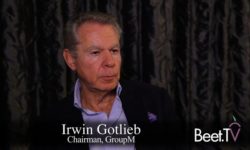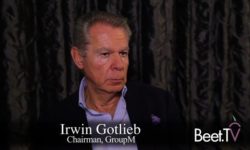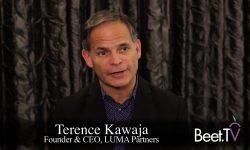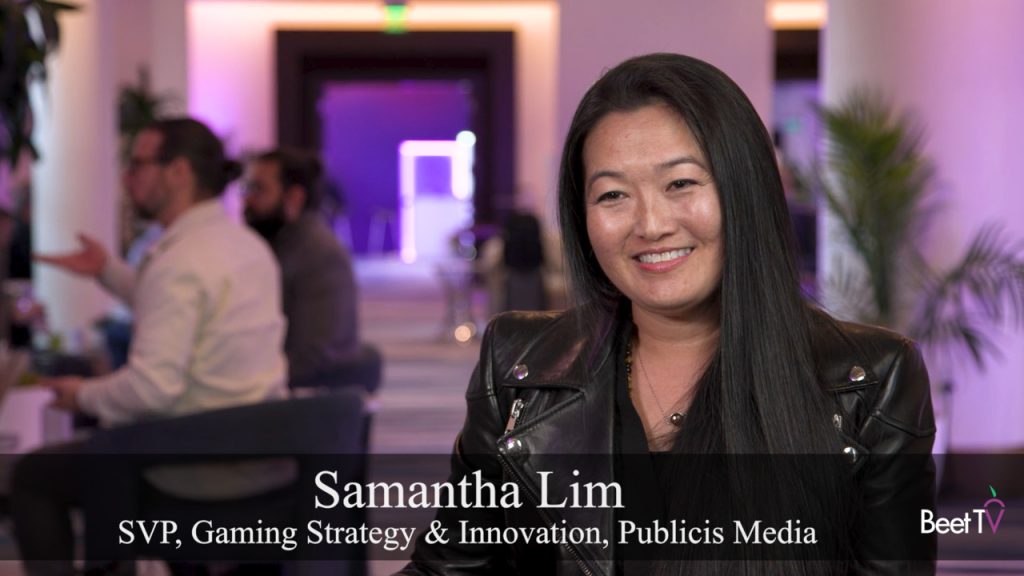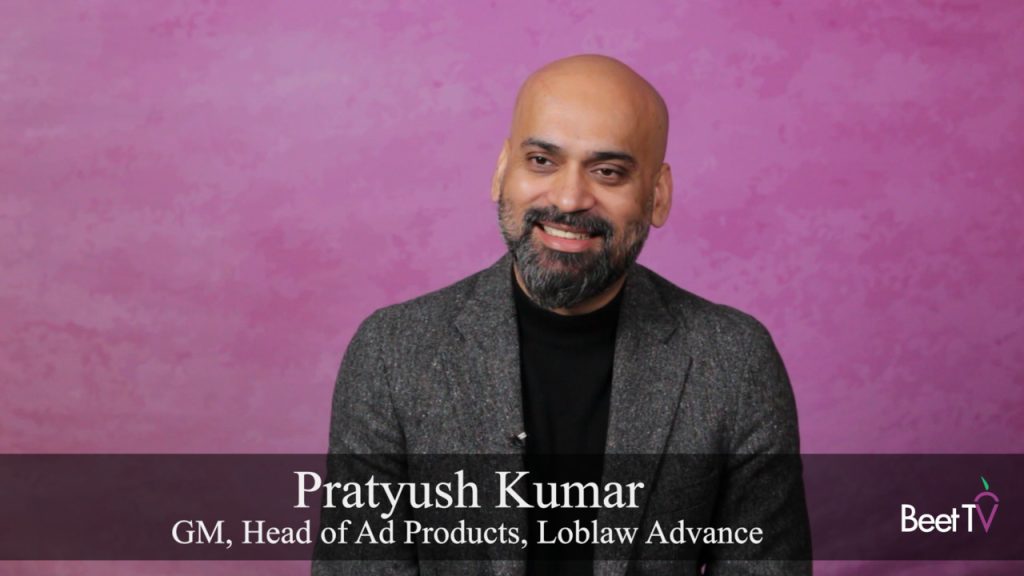LAS VEGAS — In 2018, a lot of ad-tech firms will tell you they apply “artificial intelligence” to digital advertising trading.
For Irwin Gotlieb, GroupM’s veteran – and visionary – chairman, the collection of practices that underpin AI have been around for decades. But that doesn’t mean they can’t be revolutionary, all the same.
Fundamentally, AI allows advertisers to turn what his GroupM colleague Rob Norman calls a “data exhaust” – the modern cloud of data which consumers throw off – in to something very different.
“He intended the term to be derogatory, to imply that it was pollutive because we were seeing so much potential data coming out of stuff that there was no way to process it – it was just pollution,” Gotlieb says in this video interview with Beet.TV.
“Now, all of a sudden, there is no volume of data that can’t be processed. Artificial intelligence and machine learning can divine patterns in almost any sets of data we send out. What used to be pollutive is now informative, and that’s a huge change.”
What is called AI today is largely being driven by the large-scale cloud processing power, combined with well-trained learning algorithms, boasted in an arms race by the big guns like Amazon, Google, Microsoft and IBM.
But Gotlieb has seen the broad brushstrokes before.
“Machine learning’s been around for 30 years,” he says. “We had neural networks back in the ’80s. We had backward-propagating neural networks in the early ’90s.”
What’s changed? The ability to build the data sets that machines need to train algorithms, Gotlieb reckons, plus the emergence of increasingly-powerful dedicated graphics processing units (GPUs) that now power plenty of automated cars and TVs alike.
What’s next? Only quantum computing, a next wave in which a bit can no longer have two binary states but many leading to even greater processor power.
“We know that IBM is playing with a cubit machine, that (Google’s) Deep Mind has a cubit machine, we believe Facebook has one, we believe Tencent has one,” Gotlieb says. “So, there’s work being done.
“IBM alone has a specific arrangement in place with Mercedes, with Honda, with JP Morgan and a couple of Japanese companies to explore specific areas of opportunity with early-stage quantum devices.
“A year ago, I would have said we have unthinkable levels of computing resource available to us. And this year, I think I would say we are beginning to contemplate unthinkable levels of problem solving for the benefit of our clients, for the benefit of marketing, and in the case of other companies, for the benefit of society.”
This video was produced by Beet.TV in Las Vegas at CES 2018. Please visit this page for more coverage.















